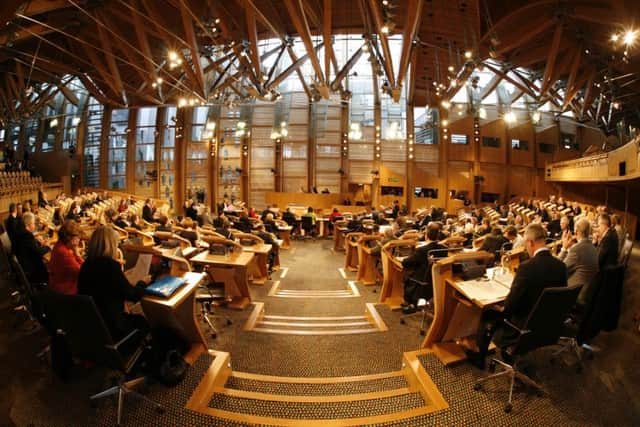Tom Peterkin: Talks on devolving abortion not over


The prospect that abortion law would be an integral part of the powers package recommended by the Smith Commission nearly brought the talks crashing down when Labour strenuously objected.
Word is there was deep concern among the strong advocates of women’s rights at the top of the party. The idea that Scotland could go its own way on the time limits for termination horrified Labour high command in London. Predicting a scenario that would see the Scottish Government succumb to pro-life pressure to tighten abortion law or cut time limits, Labour was anxious to avoid women being forced to cross the border to England to end unwanted pregnancies.
Advertisement
Hide AdAdvertisement
Hide AdIn the end, Smith reached a compromise that suggested abortion should be devolved but more discussion was required before doing so.
This week the discussions have continued in the House of Commons when a group of pro-life MPs proposed to amend the Scotland Bill to allow a tighter limit to be debated north of Border. The reappearance of the issue has led to the parties being subjected to a host of competing internal and external pressures. Labour’s objection to the proposal remains constant.
Being a party whose reason for existence is to get more powers for Scotland, the SNP cannot very well oppose taking control over abortion, even though it could mean political problems of its own. During the Smith Commission talks, Linda Fabiani argued strongly from a feminist and pro-choice perspective for its devolution.
There are, however, those in the SNP who would like to see its devolution but who take an entirely different view on this very personal issue of conscience. John Mason, for example, is in favour of tightening the time limit and would even consider putting forward a Holyrood member’s bill to achieve that should the power be transferred.
This week the pro-life amendment was rejected on the basis there should be more detailed discussions between the UK and Scottish governments. But the Tories have indicated they are relaxed about devolution on this, so the issue will come up again.
When and if abortion law finally comes to Holyrood we can expect some very robust discussion involving politicians, religious leaders and women’s rights groups. The more cynically minded might wonder if the SNP’s opponents might view the possibility of an ethically challenging and divisive debate as a welcome distraction from the constitution.